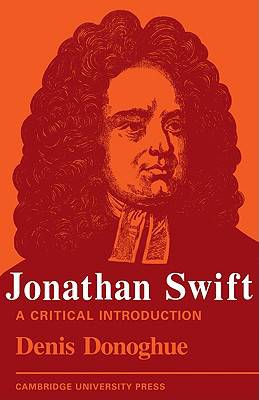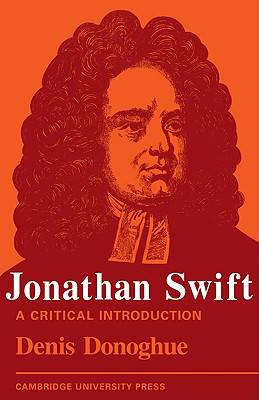
- Afhalen na 1 uur in een winkel met voorraad
- Gratis thuislevering in België vanaf € 30
- Ruim aanbod met 7 miljoen producten
- Afhalen na 1 uur in een winkel met voorraad
- Gratis thuislevering in België vanaf € 30
- Ruim aanbod met 7 miljoen producten
Zoeken
€ 72,45
+ 144 punten
Uitvoering
Omschrijving
In this concise critical survey, Professor Donoghue looks at Swift's whole output, and expresses a fresh sense of his literary character. In particular, he questions the widespread view that Swift is to be understood in terms of irony, persona or mask. He points out, for instance, that Swift's irony is not continuous, and that his sense of form is not ours. We should not see him as producing elaborate artistic structures, but as meeting particular needs which forced themselves upon him. We need also to identify the 'gestures' through which Swift revealed his characteristic mental attitudes, and behind them to sense his general life-stance; to understand his devices - such as the choice and change of perspective; his deeper pre-occupations - such as the relationship between the body, the mind and the soul; his attitude to and use of language; his conception of the nature of humanity; the characteristics of his verse.
Specificaties
Betrokkenen
- Auteur(s):
- Uitgeverij:
Inhoud
- Aantal bladzijden:
- 244
- Taal:
- Engels
Eigenschappen
- Productcode (EAN):
- 9780521141352
- Verschijningsdatum:
- 25/03/2010
- Uitvoering:
- Paperback
- Formaat:
- Trade paperback (VS)
- Afmetingen:
- 140 mm x 216 mm
- Gewicht:
- 312 g

Alleen bij Standaard Boekhandel
+ 144 punten op je klantenkaart van Standaard Boekhandel
Beoordelingen
We publiceren alleen reviews die voldoen aan de voorwaarden voor reviews. Bekijk onze voorwaarden voor reviews.











